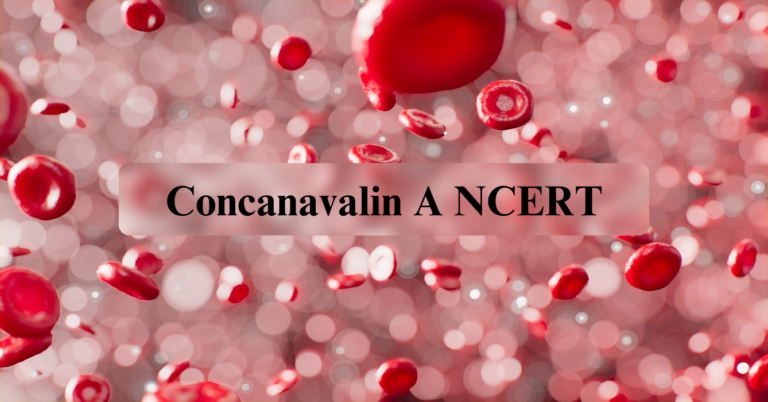

Is NCERT Good for Inorganic Chemistry?: A Comprehensive Guide
In the world of chemistry, the term “inorganic chemistry” can often send shivers down the spine of students. The fear and intimidation surrounding this subfield of chemistry is not unwarranted.To navigate this challenging landscape, many students and educators turn to educational resources like the National Council of Educational Research and Training (NCERT) in India. But is “NCERT really good for inorganic chemistry?”
In this article, we will delve into the world of inorganic chemistry and evaluate the role NCERT plays in understanding this complex subject, answering the crucial question – is NCERT good for inorganic chemistry?
Understanding Inorganic Chemistry
Before we address the question of whether NCERT is good for inorganic chemistry, it’s important to understand what inorganic chemistry is all about. Inorganic chemistry is a branch of chemistry that deals with the properties and behavior of inorganic compounds, which include metals, minerals, and organometallic compounds. This field plays a crucial role in various industries, including pharmaceuticals, materials science, and environmental science.
Role of NCERT in Inorganic Chemistry
Now, let’s turn our attention to NCERT, the National Council of Educational Research and Training. NCERT is an autonomous organization responsible for setting the curriculum for schools in India. It publishes textbooks that are widely used by students and educators as primary learning resources. But “is NCERT a good resource for inorganic chemistry?“
Comprehensive Content
NCERT textbooks are known for their comprehensive content. They cover the essential topics in inorganic chemistry in a structured and systematic manner. These textbooks are designed to provide a strong foundation in chemistry for students at various levels, from high school to undergraduate studies. The content is well-researched, accurate, and regularly updated to reflect the latest advancements in the field.
Clear Explanations
One of the strengths of NCERT textbooks is their clear and concise explanations. Inorganic chemistry concepts and theories are explained in a manner that is easy to understand. This is especially valuable for students who are new to the subject and need a solid introduction.
In-Depth Examples
NCERT textbooks include numerous examples and practice problems that help students apply their knowledge of inorganic chemistry. These examples are invaluable for reinforcing the concepts and improving problem-solving skills.


Is NCERT Good for Inorganic Chemistry?
To answer the question of whether NCERT is good for inorganic chemistry, it’s important to consider the following aspects:
Foundation Building
NCERT textbooks are excellent tools for building a strong foundation in inorganic chemistry. They cover the basics comprehensively and provide a clear understanding of the subject. For students preparing for competitive exams like JEE or NEET, a solid foundation in inorganic chemistry is crucial.
Simplified Concepts
Inorganic chemistry can be intimidating due to its complex nomenclature and vast array of elements and compounds. NCERT simplifies these concepts, making it easier for students to grasp and remember essential information.
Alignment with Examinations
For students in India, NCERT textbooks are aligned with various competitive examinations, making them an ideal resource for exam preparation. Many questions in national-level exams are directly based on NCERT content, reinforcing the importance of using these textbooks for inorganic chemistry preparation.
Integration with Practical Knowledge
NCERT textbooks provide a foundation of theoretical knowledge, which can be integrated with practical laboratory experience. Students can apply what they’ve learned in the textbooks to conduct experiments and gain a deeper understanding of inorganic chemistry.
The Limitations of NCERT
While NCERT is undoubtedly a valuable resource for inorganic chemistry, it does have some limitations:
Limited Advanced Content
For students pursuing higher education and research in inorganic chemistry, NCERT may not provide the advanced knowledge and research-based content they require. In such cases, additional reference books and research papers become essential.
Lack of In-Depth Examples
While NCERT provides a good number of examples, some students may require more practice problems and in-depth explanations to excel in inorganic chemistry. In these cases, supplementary study materials may be necessary.
Evolving Field
Inorganic chemistry is an evolving field with new discoveries and developments. NCERT textbooks may not always reflect the latest advancements, which is why staying updated with current research is important for those pursuing a career in the field.
Conclusion
In conclusion, NCERT is undeniably a valuable resource for inorganic chemistry, particularly for students at the school and undergraduate levels. It offers comprehensive content, clear explanations, and a wealth of examples that build a strong foundation in the subject. NCERT aligns with various competitive exams and provides accessibility to a wide range of students.
In the end, whether NCERT is good for inorganic chemistry largely depends on the individual’s academic and career goals. For many students, it serves as an indispensable tool in mastering this complex and essential branch of chemistry.
FAQs Related to the Topic of “Is NCERT Good for Inorganic Chemistry?”
Q1: What is NCERT, and why is it important for inorganic chemistry?
A1: NCERT stands for the National Council of Educational Research and Training. It is an autonomous organization responsible for setting the curriculum for schools in India. NCERT textbooks are important for inorganic chemistry because they provide comprehensive content, clear explanations, and a structured approach to learning the subject, making it accessible to a wide range of students.
Q2: Are NCERT textbooks suitable for competitive exams in inorganic chemistry?
A2: Yes, NCERT textbooks are highly suitable for competitive exams like JEE and NEET. Many questions in these exams are directly based on NCERT content, so a strong foundation in inorganic chemistry through NCERT is beneficial for exam preparation.
Q3: Are there any limitations to using NCERT for inorganic chemistry?
A3: Yes, there are limitations. NCERT may not provide advanced content for those pursuing higher education and research in inorganic chemistry. It may also lack in-depth examples for students who require additional practice. Moreover, the field of inorganic chemistry is constantly evolving, and NCERT may not always reflect the latest developments.
Q4: How can I supplement my inorganic chemistry studies if I need more advanced material?
A4: To supplement your studies, you can use additional reference books that delve deeper into inorganic chemistry. You can also explore research papers and articles to stay updated with the latest developments in the field. This is particularly important for those pursuing advanced studies or a career in inorganic chemistry.
Q5: Can NCERT textbooks alone make someone an expert in inorganic chemistry?
A5: While NCERT textbooks provide a solid foundation, they may not make someone an expert in inorganic chemistry. Becoming an expert requires continuous learning, practical experience, and keeping up with the latest research. NCERT is a starting point, but expertise comes with dedicated effort and ongoing education.



